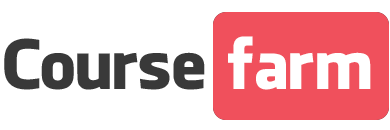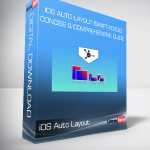iOS Auto Layout (Swift-Xcode). Concise & Comprehensive Guide
Original price was: $34.00.$15.00Current price is: $15.00.
Auto Layout allows us to design and laying out UI components within our app that will be responsive to users’ devices form factor and orientation. File size: 1.54 GB
- Description
- Reviews (0)
Description
iOS Auto Layout (Swift-Xcode). Concise & Comprehensive Guide
What you’ll learn
Properly laying out UI components that will adjust to devices sizes and orientation.
Get comfortable with auto layout UI using Storyboards.
Learn auto layout programmatically
Course content
Expand all 19 lectures04:24:51
–Introduction
04:23:51
Why Auto Layout?
Preview
05:10
Introduction to Auto Layout
Preview
21:57
Identify Auto Layout Common Issue
08:32
Constraints Priority
20:15
Orientation Based Layout
14:34
Proportional Constraints
08:45
Size Classes: Key Concept
08:17
Designing Layout with Size Classes
16:53
Content Hugging and Compression
19:44
Constraints Runtime Update
12:32
Programmatic Constraints
21:20
Layout Anchor
18:10
Visual Format Language – Key Concept
05:01
Constraint with Visual Format Language
21:08
Dynamic Tableview Cell
15:26
Stackview
15:17
More Stackview
14:28
Scrollview
16:22
–Where To Next?
01:00
Congratulations and Bonus Offer
01:00
Requirements
Basic iOS development
Latest Xcode
Get iOS Auto Layout (Swift-Xcode). Concise & Comprehensive Guide download
Description
Auto Layout allows us to design and laying out UI components within our app that will be responsive to users’ devices form factor and orientation. It will dynamically calculate the positions and sizes of the UI components automatically to deliver a consistent users experience in iOS app across devices, and with more and more devices form factors being introduced, mastering auto layout is critical and as developer we have to be really comfortable dealing with this.
Auto layout in iOS uses a constraint-based approach, which means we are setting constraints for each of the UI components that will adapt to both external (ie device size, rotation) and internal (ie internationalization) changes. In this course we will be using the Xcode storyboard approach as well as programmatic way using Swift to set our layout constraints. In some cases programmatic way might be the only way especially if we want to change the constraints at runtime.
There are a lot to cover on this course:
Orientation based layout
Size classes
Constraint priority
Proportional constraints
Content hugging and compression
Runtime update
Layout anchor
NSLayoutConstraint
Visual Format Language
Dynamic tableview cell
Stackview
Scrollview
By the time we are done, you should be comfortable dealing with auto layout in your project.
Who this course is for:
Beginner and Intermediate iOS Developer
Get iOS Auto Layout (Swift-Xcode). Concise & Comprehensive Guide download





Reviews
There are no reviews yet.